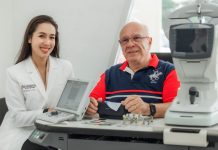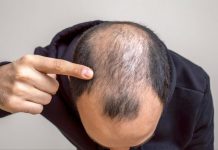Despite the death rate still being one per person, the world as a whole is getting older. My mother is 94 next month and at the rate she is going, she will be sending a telegram to the Queen of Britain, and not the other way round! In fact there will soon be more than 100 centenarians in Scotland.
The more developed countries in Asia are also showing the same trends. Grey power is becoming an important factor, with the marketing of goods and services designed for this increasing niche market. We (me included) are becoming important people.
That’s the up side. Unfortunately, there is a down side (there always is, isn’t there?) and that is just simply that the longer you live, the more parts of you that end up wearing out. And if you didn’t look after yourself some years ago, your past indiscretions can surely come round to bite you now!
And I’m not referring to teeth. As the body ages, the gastrointestinal tract changes and people tend to develop more problems with constipation. The pundits will tell you a high-fiber diet can prevent that, but many elderly people, especially those with dentures, do not want to eat the seed-filled or crunchy food that is typically high in fiber. They go for soft food that is easily chewed, but is often high in fat.
So where can we get some fiber? Try some cooked or baked vegetables, fresh fruit and high-fiber breakfast cereals as these are some denture-friendly ways to get fiber in the diet. Beans and black-eyed peas are also nutritious and inexpensive.
Another problem, especially in hot climates such as in Thailand, is insufficient intake of water. The elderly have a decreased thirst and often do not get enough fluids in their diet. Getting plenty of fluids helps prevent constipation, because the bowel is a water absorber. The constipation decreases when fluids are taken generously. Milk, tea, coffee, soda, ice cream and soup all count as fluids.
Exercise plays a part here too. Get more physical, not less. The amount of exercise needed depends on the person, but in general, people need to step up their activity as they get older. Elderly people often do the opposite, because of bad knees or arthritis. Instead of becoming a couch potato, they need to walk, bicycle, swim, garden and find other ways to stay on the move.
As we age, our calorie needs decrease due to a drop in muscle strength from taking less physical activity (see above). However, vitamin and mineral needs may stay the same or even increase if the body absorbs them less efficiently. The daily calorific requirement varies from person to person, but as a very rough guide, males need to drop their calorie intake by around 20 percent after the age of retirement (2,500 cals down to 2,100 cals) and women form 2,000 down to 1,800 cals.
There are many foods and ingredients needed to retain optimum health, including those high in Vitamin C, such as blackberries, strawberries, raspberries, blackcurrants, citrus fruit, kiwi fruit, peaches, mango, cantaloupe melon, and apples.
Vegetables high in Vitamin A (beta-carotene) and Vitamin C including carrots, squash, sweet potato, tomatoes, spinach, kale, collard greens, broccoli, cabbage, Brussels sprouts, onions, leeks and avocado.
Fish should also be included as many are rich in Omega-3 essential fatty acids and high in Vitamin E, like salmon, mackerel, sardines, herring, tuna and trout. It is also a good idea to substitute white fish in place of red meat.
Some nuts and seeds are also rich in Omega-3 essential fatty acids and high in Vitamin E, including unsalted nuts, walnuts, cashews, Brazil nuts and almonds, and seeds such as poppy seeds, sunflower, flax seeds and pumpkin seeds.
Proteins are also important in the diet for seniors and should include eggs, white fish, milk, cheese, yogurt, lean meat, chicken, beans and lentils.
Fiber can come from lentils, chick peas (garbanzo beans), brown rice, whole wheat bread, wheat germ, whole wheat cereals and whole wheat crackers.
A good spread of items, different dishes every day, plenty of water and moderation in all things seems to be the answer. A glass of red wine gets my nod of approval too.




